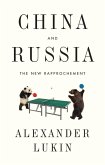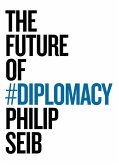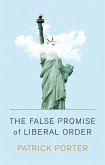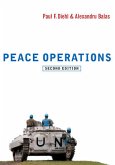In nine short days, Taliban forces destroyed two decades of American armed statebuilding in Afghanistan. This was no isolated failure. Over the last century, almost every attempt to intervene militarily to prop up or reconstruct an allied state has seen similar dismal outcomes. Why? This book answers that fundamental question.
By exploring the factors that hindered success in Afghanistan, Adam Wunische identifies forces common to other unsuccessful U.S. armed statebuilding missions, from Vietnam to Syria, Haiti to Iraq. These forces, he argues, inherently favor insurgencies, forfeit sustainability for quick results, and create dependencies and corruption - all of which undermine the goal of building a state that can stand on its own. Not only that, but most of these forces are inescapable and uncontrollable. This means any future attempts at armed statebuilding will likely also be unwinnable, with costs and consequences far outpacing America's interests and benefits.
Faced with a future likely dominated by proxy wars, Wunische offers a novel way forward to prevent the U.S. from chasing new wars that it is destined to lose.
By exploring the factors that hindered success in Afghanistan, Adam Wunische identifies forces common to other unsuccessful U.S. armed statebuilding missions, from Vietnam to Syria, Haiti to Iraq. These forces, he argues, inherently favor insurgencies, forfeit sustainability for quick results, and create dependencies and corruption - all of which undermine the goal of building a state that can stand on its own. Not only that, but most of these forces are inescapable and uncontrollable. This means any future attempts at armed statebuilding will likely also be unwinnable, with costs and consequences far outpacing America's interests and benefits.
Faced with a future likely dominated by proxy wars, Wunische offers a novel way forward to prevent the U.S. from chasing new wars that it is destined to lose.
Dieser Download kann aus rechtlichen Gründen nur mit Rechnungsadresse in D ausgeliefert werden.
"Unwinnable Wars combines a scathing indictment of the follies leading to the U.S. failure in Afghanistan with a detailed and dispassionate assessment of the challenges inherent in any attempt at armed statebuilding. It contains an abundance of policy-relevant lessons."
Andrew Bacevich, chairman and co-founder, Quincy Institute for Responsible Statecraft
"A critical read for policymakers and national security professionals, succinctly laying out why armed statebuilding is so difficult, frustrating, and unlikely to succeed. Wunische's conclusions are critical to preventing the costly future recurrence of these ambitious but doomed adventures."
Jonathan Schroden, former strategic advisor to US Forces - AFG
"Adam Wunische's Unwinnable Wars reinforces much of what we know from history and social science: armed statebuilding interventions are unlikely to succeed due to a long list of well-known factors. In an important contribution to existing scholarship, and a much-needed guide to policymakers, Wunische offers us a comprehensive framework to understand the narrow conditions under which military interventions could work. He supports this argument with compelling and wide-ranging historical case studies. A welcome and crucial addition to research on military intervention."
Jasen J. Castillo, Texas A&M University
"In this intriguing and original book, Adam Wunische convincingly argues that the debates about strategy in Afghanistan (and other armed statebuilding cases) are irrelevant, because these conflicts are unwinnable. Its sophistication, accessibility, and powerful analysis should make this a widely read and discussed book."
Jeffrey Meiser, University of Portland
Andrew Bacevich, chairman and co-founder, Quincy Institute for Responsible Statecraft
"A critical read for policymakers and national security professionals, succinctly laying out why armed statebuilding is so difficult, frustrating, and unlikely to succeed. Wunische's conclusions are critical to preventing the costly future recurrence of these ambitious but doomed adventures."
Jonathan Schroden, former strategic advisor to US Forces - AFG
"Adam Wunische's Unwinnable Wars reinforces much of what we know from history and social science: armed statebuilding interventions are unlikely to succeed due to a long list of well-known factors. In an important contribution to existing scholarship, and a much-needed guide to policymakers, Wunische offers us a comprehensive framework to understand the narrow conditions under which military interventions could work. He supports this argument with compelling and wide-ranging historical case studies. A welcome and crucial addition to research on military intervention."
Jasen J. Castillo, Texas A&M University
"In this intriguing and original book, Adam Wunische convincingly argues that the debates about strategy in Afghanistan (and other armed statebuilding cases) are irrelevant, because these conflicts are unwinnable. Its sophistication, accessibility, and powerful analysis should make this a widely read and discussed book."
Jeffrey Meiser, University of Portland









